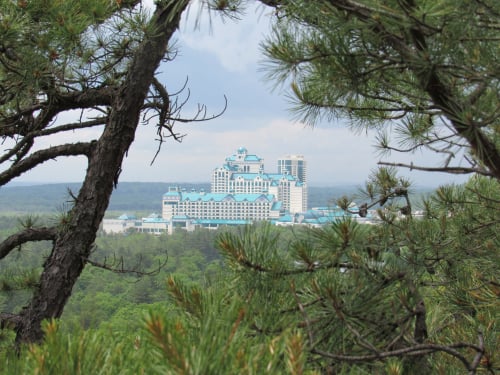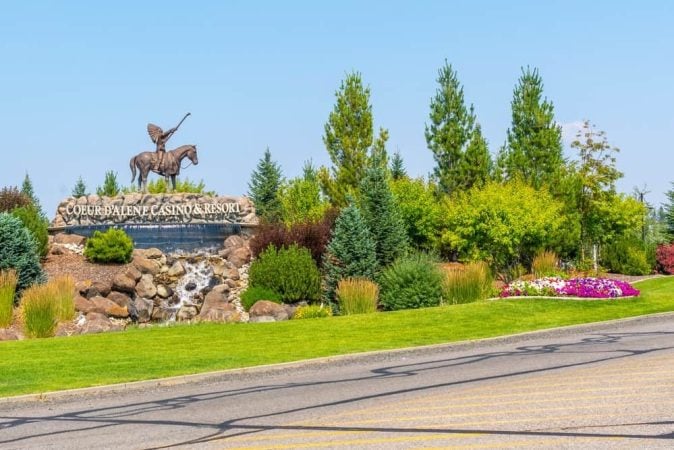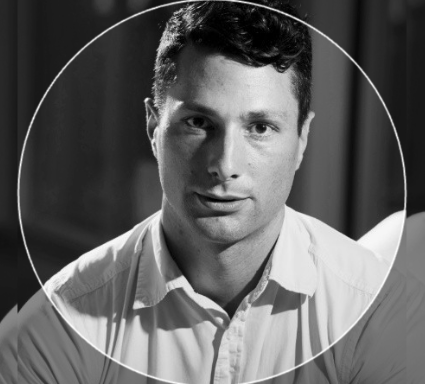To boost their revenue, many First Peoples of North America have been permitted to autonomously operate largescale casinos on their territory.
Although casinos often evoke images of high rollers living a life of luxury and big jackpots up for grabs, for most Native Americans, this type of lifestyle is as far from reality as possible. Traditionally, First Peoples of North America have been plagued with unemployment, poverty, and substance abuse due to historical exploitation and current circumstances.
However, with the arrival of casinos on Native American land, many previously closed doors have been opened for the locals. Today, several Native American tribes are laughing all the way to the bank by providing the fun and excitement people crave on weekends.
Below are three First Peoples of North America that have capitalised on their casinos and enhanced the well-being of their communities.
1. Shakopee Mdewakanton Sioux
As the most affluent First Peoples of North America tribe, the Shakopee Mdewakanton people have capitalised on everything they offer. They own the Mystic Lake Casino Hotel, the largest entertainment resort in Minnesota. This American tribe also runs the smaller Little Six Casino, a perfect destination for a more intimate, low-key setting.

As successful as these casinos are, the Shakopee Mdewakanton also own and operate many other enterprises, including event centres, golf courses, hotels, shopping malls, environmental support facilities, etc. This diversified portfolio has brought a fortune to the Shakopee Mdewakanton people, who reportedly make US$1 million per tribe member annually.
America’s most prosperous Indian tribe is located outside the Minneapolis metro area. As part of the Great Sioux Nation, the tribe originated from the Dakota people. Today, the tribe lives in harmony with its natural surroundings and contributes much of the casino profits towards environmental conservation.
2. Seminole
The Seminole First Peoples of North America tribe is incredibly widespread, with six reservations across Florida. Their properties stretch north to Tampa and south to Hollywood, including Brighton, Big Cypress, Fort Pierce, and Immokalee.
As a political entity, the Seminole Tribe of Florida was established in 1957. Today’s Seminoles include descendants of Native Americans from several areas throughout the southeastern United States, including Georgia, South Carolina, Alabama, Mississippi, Tennessee, and Florida. More recently, the tribe has used its land and know-how to bring prosperity to its people and future generations.
The Seminoles of Florida have an extraordinarily varied portfolio of casinos and resorts across the state. These include The Hard Rock Hotel and Casino in Tampa and its namesake in Hollywood, Hollywood Seminole Gaming, the first high-stakes Bingo operation in the country. Further Seminole properties include The Seminole Casino, The Brighton Seminole Bingo and Gaming Casino, and The Coconut Creek Casino.

Mashantucket Pequot
The Mashantucket Pequot tribe has had a complex history. The tribe originated near the oldest Native American reservation in the US. The reservation of the Mashantucket Pequot First Peoples of North America tribe is located south of Lake of Isles, near Norwich. Along with the Mohegans, the Mashantucket Pequots have considerably contributed to Connecticut’s thriving gambling and entertainment scene.
The tribe’s leading casino, the Foxwoods Resort and Casino, is a high-end gambling venue well-known as a getaway for New Yorkers. The casino is the main attraction, offering everything from slot machines to poker, sports betting, and innovative arena-style electronic gaming.

However, Foxwoods has much more on offer. The complex features over 35 dining and cocktail establishments, a lavish shopping area, and an outlet mall. There are also nightclubs, comedy clubs, a spa, a bowling alley, a golf course, an arcade, and even outdoor recreation. And, since you simply can’t enjoy everything in a single day, Foxwoods also offers five hotels, each with its own charm and features.
In addition to Foxwoods, which began operations as a bingo hall in 1986, the Mashantucket Pequot own and operate several successful entertainment and hospitality properties.
Development of Native American Casinos in Canada
Casinos owned by the First Peoples of North America have been a topic of interest and controversy in recent years. The Canadian government began allowing Native American tribes to operate casinos on their land in the mid-1990s to promote economic development in Indigenous communities.
Since then, there has been significant growth in the number of Native American-owned casinos in Canada. The casinos are often located in rural areas and provide jobs and revenue for the tribal members and the surrounding communities.
However, the development of Native American casinos has also been met with opposition from some groups. Critics argue that the casinos promote problem gambling and that the profits from the casinos are not evenly distributed among Indigenous communities.
Another issue that has arisen is the lack of regulation in the industry. Unlike government-run casinos, Native American casinos in Canada are not subject to the same level of oversight and regulation. This has led to concerns about money laundering, organised crime, and the exploitation of vulnerable individuals.
Despite these concerns, the development of casinos by First Peoples of North America has significantly contributed to the economic growth of Indigenous communities. Many Native American tribes have used the profits to fund social programmes, healthcare initiatives, and educational opportunities for their members.
In conclusion, while the development of Native American casinos in Canada has been controversial, it has also been a significant source of economic development for Indigenous communities. However, there are legitimate concerns about the regulation and oversight of the industry that need to be addressed.
Frequently Asked Questions
Mashantucket Pequot, Shakopee Mdewakanton, and Seminole tribes are the wealthiest First Peoples of America based on income generated from casino operations.
Reservation casinos increase employment among the locals and stimulate economic development.
Critics argue that the profits of reservation casinos don’t get distributed evenly amongst all the members of the community.


